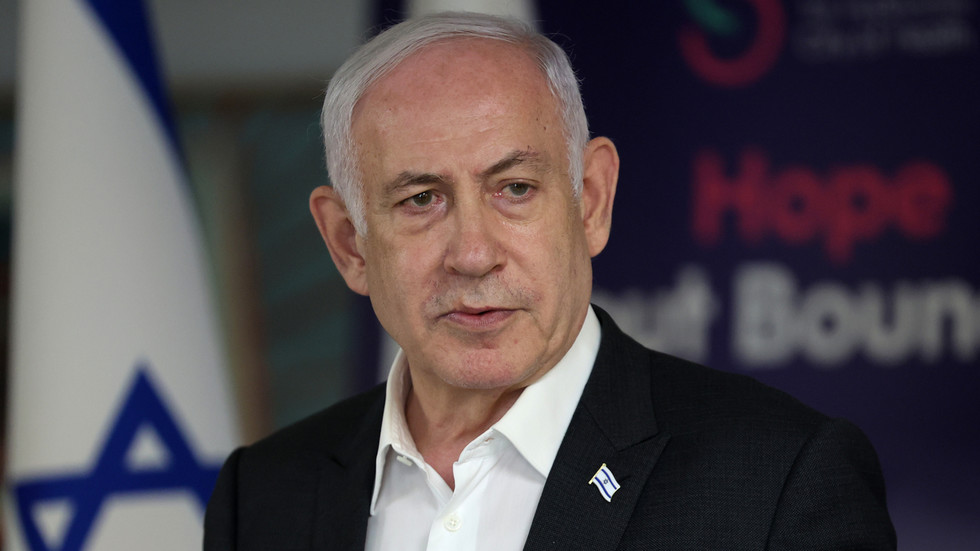Israeli Prime Minister Benjamin Netanyahu has outlined plans to expand the Abraham Accords to include more Arab nations following Israel’s military objectives in Gaza and Lebanon. Speaking to the Knesset, he emphasized that establishing stability in the region hinges on neutralizing threats from Hamas and Hezbollah. Recently, Israel engaged in military actions against Iranian military facilities as retaliation for missile attacks attributed to Tehran. This escalation coincides with a series of assassinations targeting senior Hezbollah officials and reflects rising tensions in the region. Netanyahu stated that there is a clear vision for Israel’s future once these military goals are realized, signifying a transition from conflict towards diplomatic engagement with surrounding Arab nations.
The operations in Gaza and Lebanon are seen as pivotal moments for Israel, aiming to diminish Hamas’s control in Gaza and eliminate Hezbollah’s military presence along its northern border. Netanyahu underscored that maintaining security on these fronts is of utmost importance, and plans are already underway to establish a normative structure conducive to peace. He noted that following the resolution of these conflicts, Israel would direct its efforts toward solidifying peace deals with other Arab countries through the framework of the Abraham Accords. This diplomatic strategy is characterized by the precedence of military objectives as a precursor to fruitful negotiations in the region.
The Abraham Accords, which were brokered by the United States in 2020, successfully normalized relations between Israel and several Gulf states, including Bahrain, the United Arab Emirates, and Morocco. These agreements aimed to foster peace, enhance interfaith dialogue, and reduce radicalization throughout the Middle East. However, Netanyahu’s administration is keen to broaden these accords to include other significant players in the region, particularly Saudi Arabia. The ongoing military operations are anticipated to bolster Israel’s standing in the eyes of potential new partners by demonstrating its military resilience against perceived threats, primarily coming from Iran and its allies.
Netanyahu hinted at the possibility of normalizing relations with Saudi Arabia, noting an optimistic outlook prior to the Hamas conflict, where discussions seemed to indicate a rapprochement was on the horizon. However, the geopolitical landscape has shifted dramatically with the escalation of violence in Gaza, leading Riyadh to signal that any normalization efforts will be contingent on Israel’s stance regarding Palestinian statehood. This presents a significant diplomatic hurdle, as Netanyahu’s government has consistently opposed the establishment of a Palestinian state, thereby complicating potential reconciliatory efforts with Saudi Arabia and other Arab nations.
The reference to the “Iranian axis of evil” reflects a broader narrative adopted by Israel to unite potential allies against a common adversary. Netanyahu asserts that Arab countries are increasingly recognizing the threat posed by Iranian involvement in the region, particularly through militant groups like Hezbollah and Hamas. The Israeli government intends to leverage these sentiments to forge alliances that transcend historical hostilities, thus promoting a new paradigm in Middle Eastern geopolitics where security concerns are central to forging relationships even amidst longstanding disputes over issues such as Palestine.
In summary, Netanyahu’s vision for a broader Abraham Accords hinges on the successful neutralization of Hamas and Hezbollah’s military capabilities in Gaza and Lebanon. This military strategy serves as a springboard for renewed diplomatic efforts aimed at securing peace agreements with other Arab nations, translating military success into political capital. While the prospect of normalizing relations with Saudi Arabia offers a tantalizing goal for Israel, the requirements surrounding Palestinian statehood pose significant challenges that threaten to derail these diplomatic overtures. As Israel navigates this complex landscape, its ability to transform military objectives into lasting peace agreements will be pivotal for long-term stability in the region.

